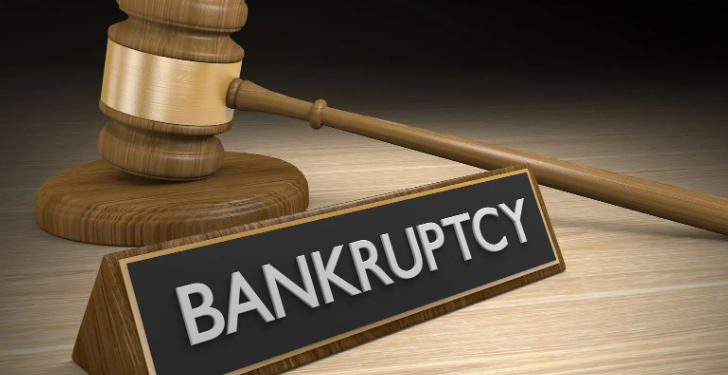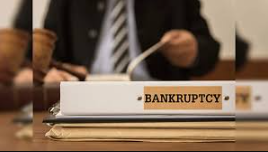Facing financial struggles can feel overwhelming, especially in the vibrant and bustling areas of the Southwest Chicago suburbs. If you’re grappling with debt that seems insurmountable, Chapter 13 bankruptcy might just be the lifeline you need. This legal avenue allows individuals to reorganize their debts while keeping crucial assets like your home or car. Many residents have found relief through this process, paving the way for a more stable financial future. Whether you’re new to the concept or looking for guidance on how it works in your community, understanding Chapter 13 bankruptcy is essential for regaining control over your finances and achieving peace of mind. Let’s dive into what Chapter 13 entails and discover its benefits specifically tailored for those living in southwest Chicago suburbs.
Content Hints
What is Chapter 13 Bankruptcy?
Chapter 13 bankruptcy is a legal solution designed for individuals who need help managing their debts. Unlike Chapter 7, which involves liquidating assets, this option allows you to keep your property while restructuring your payment plan.
This type of bankruptcy enables you to propose a repayment plan that lasts three to five years. Throughout this period, you make monthly payments based on your income and expenses. The court supervises the process, ensuring fairness for both debtors and creditors.
One key feature of Chapter 13 is its ability to halt foreclosure proceedings. If you’re at risk of losing your home, filing under this chapter can provide immediate protection from creditors while you work through your financial challenges.
It offers a path toward regaining stability without sacrificing essential assets or enduring the stress of constant collection calls.
Benefits of Filing for Chapter 13 in Southwest Chicago Suburbs
Filing for Chapter 13 bankruptcy in the Southwest Chicago suburbs offers numerous advantages. One significant benefit is that it provides a structured repayment plan, allowing individuals to catch up on missed mortgage or car payments while protecting their assets.
Residents can also enjoy the peace of mind that comes from halting foreclosure proceedings. This temporary relief allows homeowners to reorganize their finances without the immediate threat of losing their homes.
Additionally, Chapter 13 can help eliminate unsecured debts like credit card balances and medical bills through manageable payment plans.
Another important aspect is how this process positively impacts credit scores over time. With consistent payments, filers often see improvements as they work towards financial recovery.
Filing locally means access to experienced attorneys who understand regional laws and nuances, making the journey smoother for those navigating this challenging situation.
The Process of Filing for Chapter 13
Filing for Chapter 13 bankruptcy involves a series of distinct steps. First, gather your financial documents. This includes income statements, tax returns, and lists of debts.
Next, you will need to complete the required credit counseling course. This is mandated by law and helps you understand your options moving forward.
Once you’ve completed the course, you’ll file a petition with the local bankruptcy court in the Southwest Chicago suburbs. Along with this petition, submit your repayment plan that outlines how you intend to pay off creditors over three to five years.
A meeting of creditors follows shortly after filing. Here, you’ll meet with a trustee who reviews your plan and facilitates discussions between you and your creditors.
Throughout this process, staying organized is crucial. Keeping track of deadlines will help ensure everything goes smoothly as you work toward regaining financial stability.
Eligibility Requirements for Chapter 13 Bankruptcy
To qualify for Chapter 13 bankruptcy, you must meet specific criteria. First, your secured and unsecured debts must fall below certain limits set by the federal government. As of now, these figures are regularly updated, so checking current thresholds is crucial.
Next, you need a regular source of income. This can come from wages, self-employment, or other consistent payments like Social Security benefits. The idea is to show that you have the means to repay some portion of your debts over time.
Additionally, individuals who have filed for bankruptcy in the past may face restrictions on how soon they can refile under Chapter 13. It’s essential to consult with an attorney if you’ve previously gone through this process.
Completing credit counseling before filing is mandatory. This step ensures you’re making informed financial decisions moving forward.
Common Misconceptions About Chapter 13 Bankruptcy
Many people harbor misconceptions about Chapter 13 bankruptcy. One prevalent myth is that filing for it means losing everything you own. In reality, most individuals can keep their assets while reorganizing debt.
Another common belief is that Chapter 13 bankruptcy wipes out all debts. While it does allow for the restructuring of unsecured debts, certain obligations like student loans and tax liabilities often remain intact.
Some also think that once they file, creditors will stop contacting them immediately. Though an automatic stay goes into effect, some collections may still occur until the repayment plan is confirmed.
There’s a notion that this process ruins your credit forever. While it’s true there will be an initial impact on your score, many individuals see improvements in their credit profiles post-bankruptcy as they manage new financial habits responsibly.
Finding the Right Bankruptcy Attorney in Southwest Chicago Suburbs
Choosing the right bankruptcy attorney in the Southwest Chicago suburbs can significantly impact your Chapter 13 experience. Start by seeking recommendations from friends or family who may have gone through a similar process.
Research potential attorneys online. Look for reviews and testimonials that speak to their expertise in handling Chapter 13 cases. A solid reputation is crucial, as it indicates trustworthiness and skill.
Schedule consultations with multiple candidates. This step allows you to gauge their communication style and ability to explain complex legal terms clearly.
Ask about their experience specifically with Chapter 13 bankruptcies, including how many clients they’ve successfully represented in your area. Don’t hesitate to inquire about fees upfront; transparency is essential for establishing a good working relationship.
Choose someone who makes you feel comfortable and confident in navigating this challenging financial journey together.
Life After Chapter 13 Bankruptcy: Rebuilding Credit and Financial Stability
Life after filing for Chapter 13 bankruptcy can be a pivotal time filled with opportunities to rebuild your financial life. The process does not end once the court approves your repayment plan. Instead, it marks the beginning of a new chapter where you can take proactive steps towards restoring your credit and achieving financial stability.
Once you’ve completed your repayment plan, it’s essential to start focusing on rebuilding your credit score. This can be done by obtaining a secured credit card or small personal loans, as these are often easier to qualify for post-bankruptcy. Making consistent, on-time payments will help improve your creditworthiness over time.
Additionally, developing a budget is crucial. Understanding where every dollar goes helps in managing expenses and saving for future goals. It’s also beneficial to seek out financial education resources available in the Southwest Chicago suburbs that offer workshops and counseling tailored for those who have undergone bankruptcy.
Establishing an emergency fund should become a priority as well. Having savings set aside provides security against unexpected expenses that could disrupt progress made since filing bankruptcy.
Remember that while Chapter 13 may feel like a setback at first glance, with dedication and planning, it can lead you toward greater financial awareness and responsibility in the long run. Embracing this journey with optimism will allow you to emerge stronger than before, ready to face whatever challenges lie ahead while enjoying newfound peace of mind about your finances.











